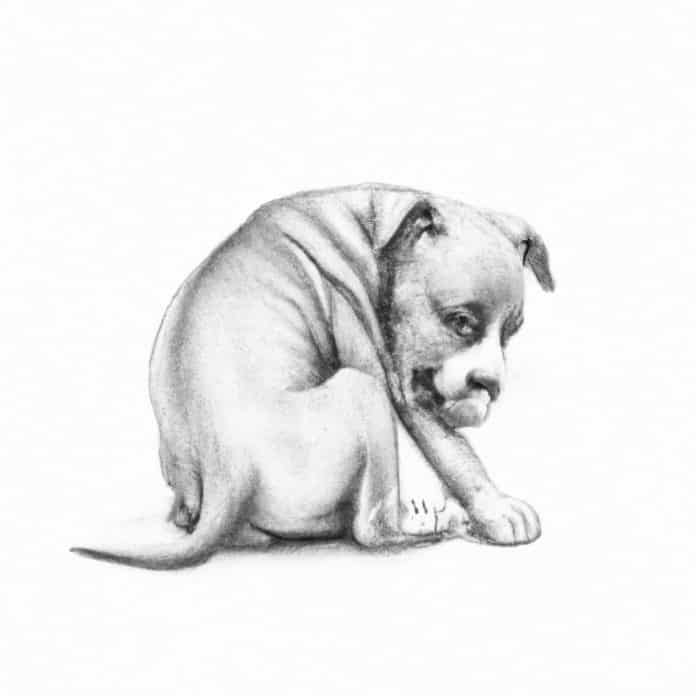Dear VetBabble,
Why is my 3.5-month-old Pitbull puppy biting and licking her tail? What should I do?
As a loving and concerned pet owner, it’s natural to worry when you notice your puppy exhibiting unusual behavior, such as biting and licking her tail. There could be multiple reasons for this behavior, which is why it’s essential to identify the root cause and address it accordingly. In this article, we will discuss some possible reasons and solutions to help your young Pitbull, and other puppies experiencing similar issues, live a comfortable and happy life.
Section 1: Possible Causes for Tail Biting and Licking
It’s essential to determine the reasons behind your puppy’s tail biting and licking, as various factors can contribute to this behavior. Some common causes include:
- Fleas: One possible and prevalent cause of tail biting and licking is the presence of fleas on your dog, especially around the tail area. Fleas can be a nuisance for our furry friends, causing discomfort, itching, and irritation. To rule out this possibility, evaluate and address any flea issues by reading our article, Does My Dog Have Fleas?
- Allergies: Your puppy could be experiencing allergies, leading to itching and discomfort around her tail area. Allergies can range from environmental factors such as pollen, dust mites, or cleaning products to food allergies.
- Anal Gland Issues: Discomfort in the anal glands may lead your puppy to bite and lick her tail. This issue may arise from full or impacted anal glands, which require medical attention.
- Behavioral Issues: Sometimes, tail chewing and licking can be attributed to stress, anxiety, or boredom. Separation anxiety, lack of physical exercise, or a change in the living environment could lead to such behavioral issues.
If you’re unsure about the cause behind your puppy’s tail biting, it’s always best to consult your regular veterinarian for a proper assessment.
Section 2: Importance of Flea, Tick, and Worm Prevention
As mentioned earlier, fleas can be a likely reason for tail biting and licking in puppies. Therefore, it is vital to ensure your dog is protected from fleas, ticks, and worms. Using high-quality flea, tick, and intestinal parasite preventive measures is an essential component of your dog’s overall health and well-being. Some well-known products to consider include Frontline Plus and Heartgard.
By reading our article on Flea and Tick Control for Dogs, you can learn more about effective methods for controlling and preventing fleas and ticks on your pet, reducing the chances of such issues arising.
Our comprehensive guide on Fleas, Ticks & Worms: What You Need to Know can also help you understand the importance of prevention, the available treatments, and the precautions you must take. For pet owners with new puppies, our article on Simplifying Fleas, Ticks and Worms will provide accessible information about these parasites and their treatments.
Section 3: When to Consult Your Veterinarian
Although it’s essential to identify and address the causes of tail biting and licking independently, sometimes visiting your veterinarian is necessary. It is crucial to seek professional advice in the following situations:
- When hair loss is evident around your puppy’s tail area.
- If you’ve addressed possible causes, but the issue persists.
- If your puppy appears to be in severe pain or discomfort.
- If there is any visible infection, swelling, or bleeding as a result of tail biting.
Please remember that your veterinarian is your best resource when dealing with your pet’s health. They can provide professional guidance and prescribe appropriate medications as well as advise on changes needed in their diet, living environment, or exercise routine.
In conclusion, it’s essential to remain attentive to your puppy’s behavior and take appropriate action if you notice any issues. Identifying the causes of tail biting and licking, engaging in flea, tick, and worm prevention, and seeking your veterinarian’s assistance when needed are all crucial steps to ensure your puppy’s health and happiness.









